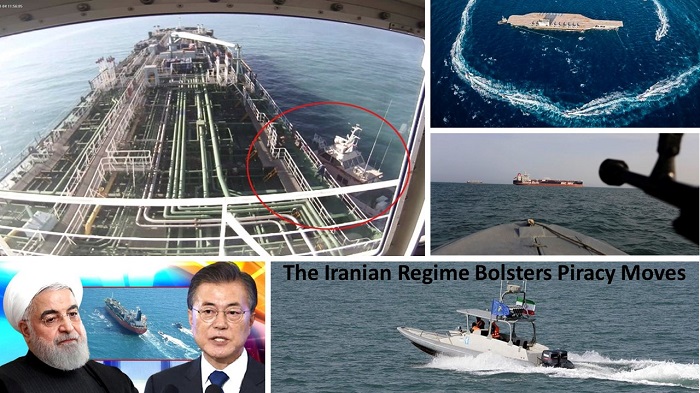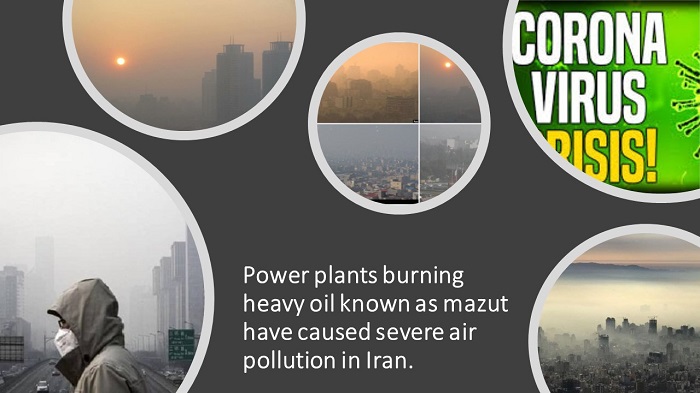
Following the seizure of a South Korean oil tanker in the Strait of Hormoz, according to state-run media sources, Tehran’s main aim for capturing the South-Korean-flagged tanker was because Iranian officials, including the Central Bank of Iran (CBI) Governor Abdolnasser Hematti, had been complaining about the government’s frozen funds in South Korean banks.
The Vatan-e Ruz paper, associated closely with the Supreme Leader Ali Khamenei‘s office, reported in a recent headline that “We Captured Thieves”. By seizing the oil tanker in the media said that this was a serious message for the South Korean government.
Iran's navy seized a South Korean-flagged oil tanker in the Strait of Hormuz, amid tensions between Tehran and Seoul over Iranian funds frozen in South Korean banks due to U.S sanctions. https://t.co/8kpbBiC3Mz pic.twitter.com/tIexwxnn29
— ABC News (@ABC) January 4, 2021
Basically, this leaves South Korea with two choices, which are:
- paying its long-time debt to Tehran,
- sacrificing the security of [its flotilla] on the naval highway of the Persian Gulf and therefore its communication with its Arab partners.
The National Council of Resistance of Iran (NCRI) and the People’s Mojahedin Organization of Iran (PMOI / MEK Iran) analysts say this shows the mullahs’ regime is eager to put pressure on South Korea to get it to pay what it owes to Iran.

The Arman daily, affiliated to the ‘reformists’, quoted a government expert, Ali Bigdeli, on why the mullahs’ regime had illegally captured this South-Korean tanker. He said the South Korean government hasn’t the money to pay what it owes to Iran. But he thinks that it could offer humanitarian assistance instead, in the form of help with COVID-19 medication and vaccines.
Despite what the government has previously said, there are no sanctions imposed on the country regarding the supply of medicine and COVID 19 vaccines.
More than 197,900 people have lost their lives due to COVID-19, which has spread to 478 cities in Iran, reported by the National Council of Resistance of Iran (NCRI) and the Mujahedin-e Khalq (PMOI / MEK Iran).
The Iranian media in general points out that the public doesn’t trust the state at all. This, according to Mardom Salari daily, is because the government doesn’t do anything about dilemmas the country faces, such as air pollution in Tehran.

Another media source controlled by President Hassan Rouhani criticized the Majlis for the way it interferes in foreign policies. The Majlis’s Shadow on Foreign Policies said, according to the Ebtekar daily, “easing tensions in Iran’s foreign relations are not likely to happen any time soon.”
Ebtekar also questioned the Majlis’s recent law about 20% uranium enrichment, which is the ultimate obstacle for the government’s foreign policies.
The more ‘reformist’ media outlets often emphasize how important negotiations and concessions to the West are otherwise the countries cannot expect much to change.
Following the seizure of a South Korean oil tanker in the Strait of Hormoz, #Iran' state media outlets signaled the government’s main goal through this piracy.https://t.co/lJjwqdYeTe
— Heshmat Alavi (@HeshmatAlavi) January 6, 2021
“The Risk of Increasing Tensions Between Iran and the U.S.,” wrote Setareh-e Sobh daily. The ‘reformist’-dominated daily pointed to sanctions and the government’s regional isolation, writing, “These pressures intend to put the [Iranian] state in a political, military, and security impasse to restrict the state’s presence in the region.”
The media outlet says the cheapest solution is setting up negotiations with the U.S. Domestic problems are getting worse by the day and there needs to be a solution.
The Jahan-e Sanat daily’s said that if proper negotiations don’t take place soon the U.S, could resort to military forces.
“In such circumstances, the slightest undiplomatic behavior may lead to irreparable damages… Therefore, Majlis should not increase tensions with provocative plans in this sensitive status quo,” Jahan-e Sanat wrote.
and People’s Mojahedin Organization of Iran – MEK IRAN – YouTube







